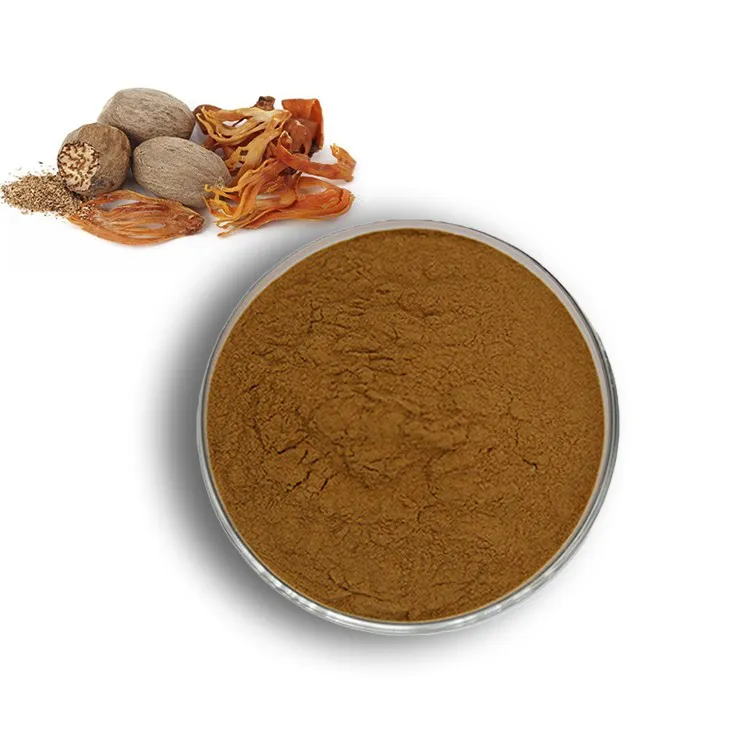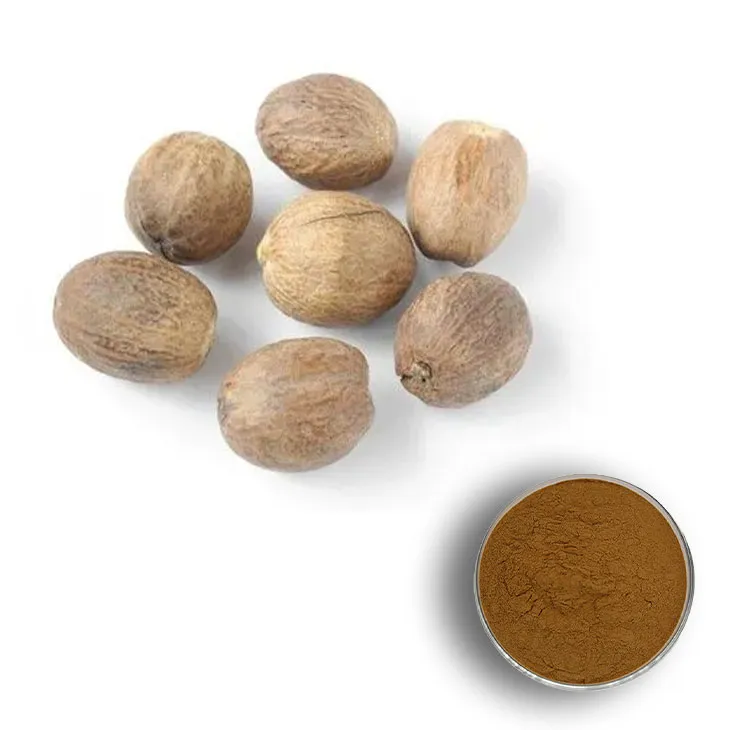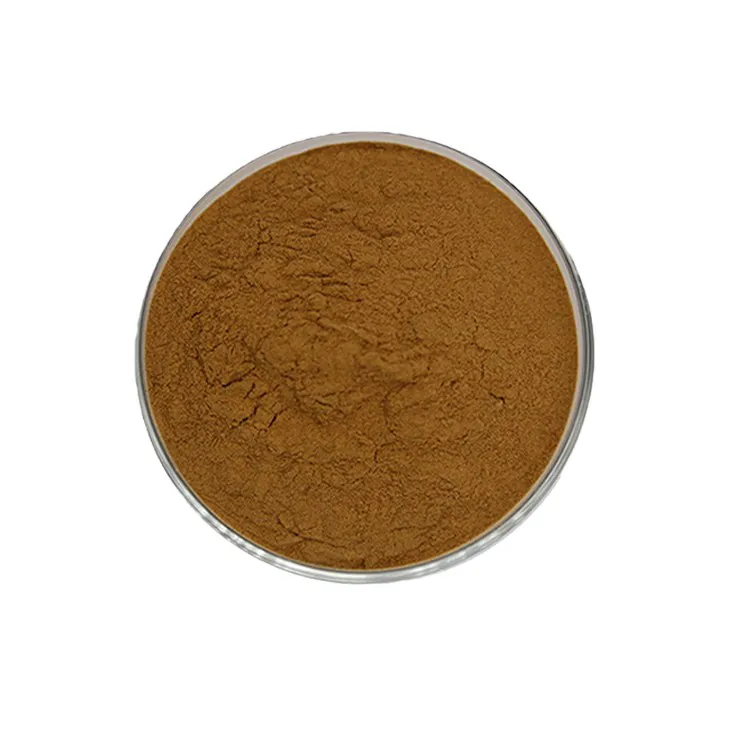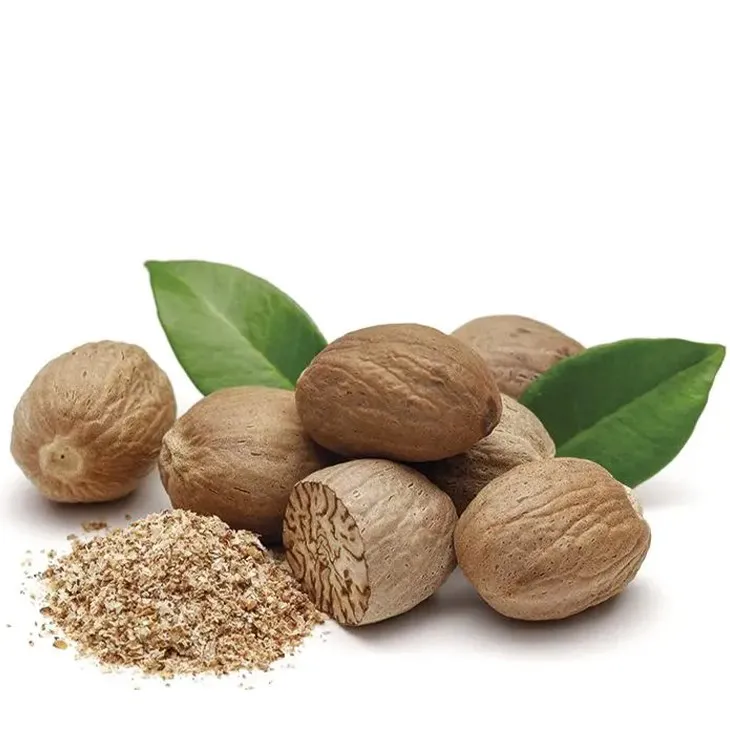- 0086-571-85302990
- sales@greenskybio.com
5 Big Reasons for Using Nutmeg Extract in the Food Industry.
2024-12-10

1. Exceptional Flavor Enhancement
Nutmeg Extract is a powerful flavor enhancer in the food industry. It imparts a unique and distinct taste to a wide variety of food products. The flavor of nutmeg is warm, spicy, and slightly sweet, which can add depth and complexity to both sweet and savory dishes.
- In baking, for example, Nutmeg Extract is a common ingredient in cakes, cookies, and pies. It enhances the overall flavor profile, making the baked goods more appealing. The spicy note of nutmeg complements the sweetness of the sugar and other ingredients, creating a harmonious blend of flavors. A simple vanilla cake can be transformed into a more sophisticated and indulgent treat with just a few drops of Nutmeg Extract.
- When it comes to savory dishes, nutmeg extract can be used in sauces, soups, and stews. In a creamy béchamel sauce, a touch of nutmeg extract can elevate the flavor, adding a subtle warmth that cuts through the richness of the cream. In a hearty beef stew, it can enhance the overall umami flavor, creating a more well - rounded and satisfying dish.
- Even in beverages, nutmeg extract can play a role. In a warm spiced cider or a mulled wine, nutmeg extract adds a characteristic flavor that is associated with the holiday season. It gives the drinks a cozy and inviting aroma and taste.

2. Texture Modification
Another important reason for using nutmeg extract in the food industry is its ability to modify the texture of food products to an optimal state.
- In some dairy - based products like custards and puddings, nutmeg extract can influence the thickness and smoothness. It can interact with the proteins and fats in the dairy, helping to create a more consistent and creamy texture. This is crucial for achieving the perfect mouthfeel in these types of desserts.
- In meat products, nutmeg extract can have an impact on the binding and firmness. When added in small amounts, it can help in holding the meat together, especially in processed meats such as sausages. This can improve the overall quality and appearance of the meat product, making it more appealing to consumers.
- For baked goods, nutmeg extract can also affect the crumb structure. It can contribute to a more tender and evenly textured crumb, preventing the baked item from being too dense or too crumbly. This is essential for creating high - quality bread, cakes, and pastries.

3. Preservation Properties
Nutmeg extract offers preservation benefits, which is highly valuable in the food industry.
- It contains certain compounds that have antimicrobial properties. These compounds can inhibit the growth of bacteria, molds, and yeasts in food products. For example, in jams and jellies, where spoilage due to microbial growth is a concern, the addition of nutmeg extract can help extend the shelf life. It acts as a natural preservative, reducing the need for artificial preservatives, which is appealing to consumers who prefer more natural food products.
- In dried fruits and nuts, nutmeg extract can also play a role in preventing spoilage. The antimicrobial activity helps keep these products fresh for a longer period. This is particularly important in the food industry as it reduces food waste and allows for longer storage and distribution times.
- Even in some refrigerated or frozen food products, nutmeg extract can contribute to preservation. It can help maintain the quality of the food during storage, preventing the growth of spoilage - causing microorganisms.

4. Nutrient Provision
Nutmeg extract provides essential nutrients, making it a valuable addition to food products.
- It contains vitamins such as vitamin A, which is important for vision, immune function, and cell growth. Incorporating nutmeg extract into food products can be a way to increase the vitamin A content, especially in products that may not typically be rich in this vitamin.
- There are also minerals present in nutmeg extract, like potassium. Potassium is essential for maintaining proper heart function, regulating blood pressure, and ensuring normal muscle and nerve function. By using nutmeg extract in food, it can contribute to the overall mineral intake of consumers.
- Furthermore, nutmeg extract contains antioxidants. These antioxidants can help protect the body's cells from damage caused by free radicals. In the context of food, adding nutmeg extract can enhance the antioxidant content of the product, providing potential health benefits to consumers.

5. Cost - Effective Formulation for Quality Products
Nutmeg extract is beneficial for formulating food products with good quality and reasonable cost.
- It is a cost - effective way to add flavor. Compared to using whole nutmeg or other more expensive flavoring agents, nutmeg extract can be used in smaller quantities to achieve the desired flavor. This not only reduces the cost of raw materials but also allows for more precise flavor control in food production.
- In terms of quality, as mentioned before, it enhances the flavor, texture, and preservation of food products. This means that with a relatively small investment in nutmeg extract, food manufacturers can produce products that are of higher quality in multiple aspects. For example, a food product with nutmeg extract may have a longer shelf life, better texture, and more appealing flavor, all of which can contribute to increased customer satisfaction and potentially higher sales.
- Moreover, nutmeg extract can be easily incorporated into existing food formulations. It is compatible with a wide range of other ingredients, making it a convenient choice for food product development. This flexibility in formulation allows manufacturers to create new and improved products without having to make major changes to their production processes or ingredient lists.
FAQ:
Q1: How does meat extract enhance the flavor of food?
Meat extract contains various flavor - active compounds. These compounds can interact with the taste receptors on our tongues, intensifying the basic tastes such as umami, which gives food a more distinct and rich taste. It can blend well with other ingredients in the food, enhancing the overall flavor profile.
Q2: In what way does meat extract modify the texture of food?
Meat extract can interact with proteins and other components in the food. It may help in binding water, which can affect the moisture content and thus the texture. For example, in some processed meat products, it can contribute to a more tender and juicy texture by influencing the protein - water interactions and preventing excessive drying or toughening of the product.
Q3: How does meat extract contribute to food preservation?
Meat extract has certain properties that can inhibit the growth of spoilage - causing microorganisms. It may contain substances that create an unfavorable environment for bacteria, yeast, and molds. Also, its role in modifying the food's internal environment, such as adjusting the pH or water activity, can slow down the spoilage process.
Q4: What essential nutrients does meat extract provide?
Meat extract typically contains amino acids, which are the building blocks of proteins. It may also have vitamins, minerals, and peptides. Amino acids are essential for various physiological functions in the body, such as muscle building, enzyme production, and immune function. Vitamins and minerals contribute to overall health and well - being.
Q5: How does meat extract help in formulating cost - effective high - quality food products?
Meat extract can add a meaty flavor and certain functional properties to food products without the need to use large amounts of actual meat. This can reduce the cost of raw materials while still maintaining or even enhancing the quality. It can also be used to standardize the flavor and quality of products, ensuring consistency in production.
Q6: Are there any potential drawbacks or limitations to using meat extract in the food industry?
One potential drawback is that some people may have allergies or sensitivities to components in meat extract. Also, in some cases, if not used properly, it may impart an overly strong or artificial flavor. There may be regulatory limitations on the use of certain types of meat extract in different regions or for specific food products.
Related literature
- The Role of Meat Extract in Modern Food Processing"
- "Meat Extract: Nutritional and Functional Aspects in Food"
- "Advances in Meat Extract Technology for the Food Industry"
- ▶ Hesperidin
- ▶ Citrus Bioflavonoids
- ▶ Plant Extract
- ▶ lycopene
- ▶ Diosmin
- ▶ Grape seed extract
- ▶ Sea buckthorn Juice Powder
- ▶ Fruit Juice Powder
- ▶ Hops Extract
- ▶ Artichoke Extract
- ▶ Mushroom extract
- ▶ Astaxanthin
- ▶ Green Tea Extract
- ▶ Curcumin
- ▶ Horse Chestnut Extract
- ▶ Other Product
- ▶ Boswellia Serrata Extract
- ▶ Resveratrol
- ▶ Marigold Extract
- ▶ Grape Leaf Extract
- ▶ New Product
- ▶ Aminolevulinic acid
- ▶ Cranberry Extract
- ▶ Red Yeast Rice
- ▶ Red Wine Extract
-
Nettle leaf extract
2024-12-10
-
Eyebright Extract
2024-12-10
-
Peppermint Extract Powder
2024-12-10
-
Moringa powder
2024-12-10
-
Echinacea Extract
2024-12-10
-
Genistein
2024-12-10
-
Reishi mushroom extract
2024-12-10
-
Feverfew Extract
2024-12-10
-
Acerola Extract
2024-12-10
-
Grapefruit Seed Extract Powder
2024-12-10





















